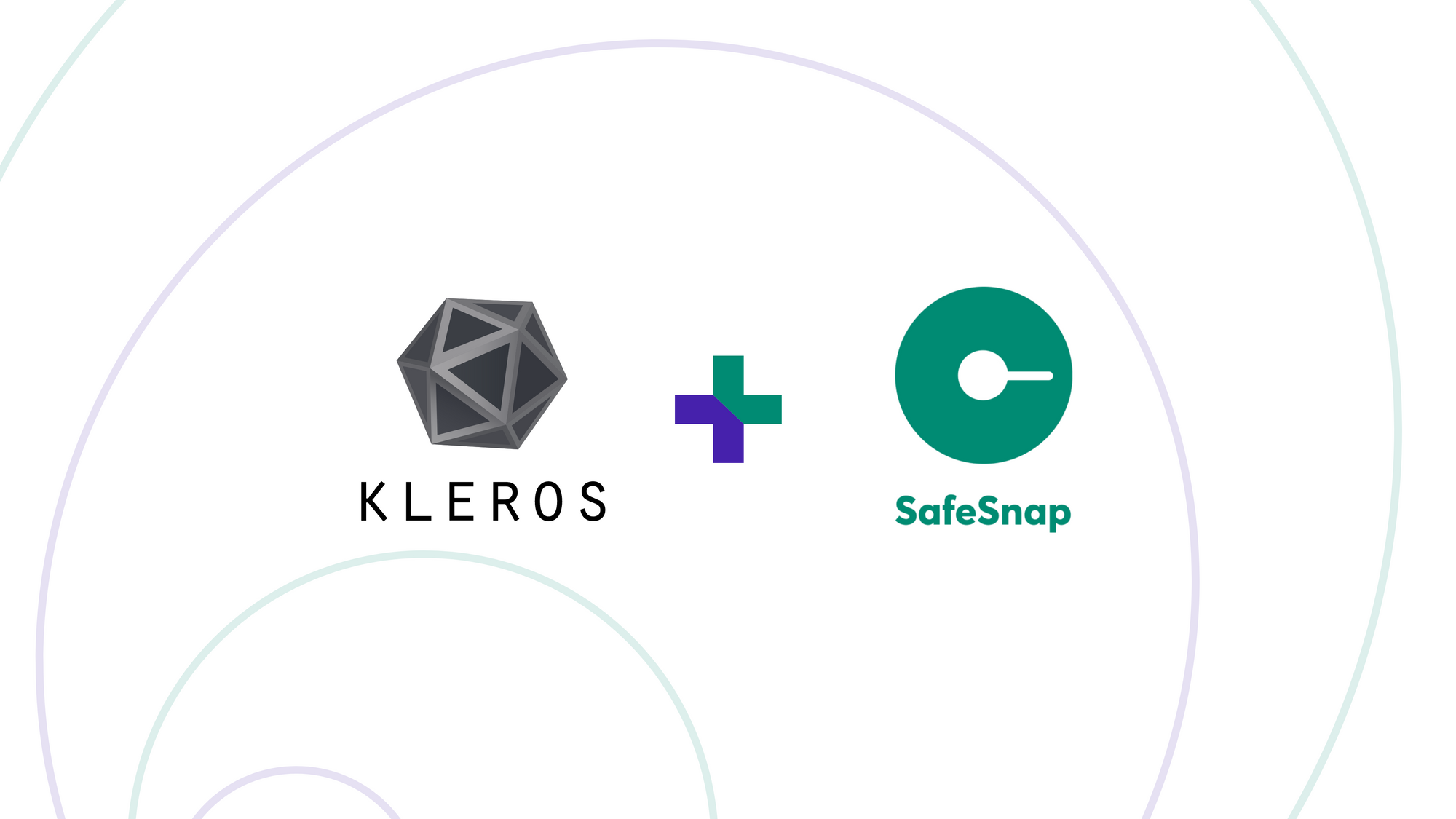Kleros x Gnosis SafeSnap: How the Open DeFi DAO decentralizes its governance
Open DeFi to be the first DAO to decentralize its governance through trustless proposal enforcement

Open DeFi to be the first DAO to decentralize its governance through trustless proposal enforcement
Open DeFi DAO has just announced that it is working with Gnosis and Kleros to pioneer an innovative governance solution leveraging Gnosis Safe with its multi-signature secured vaults and treasury management suite, and Kleros with its decentralized arbitration layer, to decentralize their entire process of governance.

Why Kleros?
As an open and neutral arbitration system, Kleros can be a useful tool to integrate with the governance of DAOs that want to ensure that their process is fully decentralized. It can be used in conjunction with other tools to enforce the correct execution of governance proposals on-chain by resolving disputes related to proposal enforcements in an unbiased manner.
Kleros as a Supreme Court and Gnosis Safe as the Treasury for DAOs
Kleros has first paved the way for DAOs to make their governance more permissionless and decentralized by using the Kleros Governor enforcement contracts for Kleros and Proof of Humanity DAOs. With more and more DAOs using Gnosis Safe to secure their treasuries and governance, a new way to solve the dilemma of trustless, on-chain execution based on the outcome of off-chain votes has emerged.
Using the SafeSnap governance module from Gnosis Safe in conjunction with Kleros Court as final arbitrator, any DAO can now implement their off-chain governance decision without having to rely on any trusted party to execute them on-chain.
DAOs can determine the rules for a vote to be executable, this can be very simple like “execute all proposals with a majority” but can also have more complex rules like the need of super-majorities (ex: >66% of approval for a proposal changing a fundamental part of an application) for particular types of actions or fully fledged DAO constitutions (which could protect minority stakeholders from abuse of the majority).
How does it work?
- A governance proposal is submitted off-chain on Snapshot (or any other off-chain voting system) and the community votes on the choices provided.
- Using the Gnosis Safe SafeSnap module, anyone can create a corresponding proposal which consists of a payload and a question asked on Reality.eth asking if the payload corresponds to what has been voted on the Snapshot page.
- The question asked in Reality.eth is submitted with an initial "Yes" answer and its associated bond (using the DAO ERC-20 governance token for example) and anyone can challenge this answer by depositing a bond and entering the bond escalation game.
- If no one challenges the question or one of the answers is not challenged in time, then the proposal can be enforced through an option on the Snapshot interface to trigger each of the transactions in the proposal.
- If the bond escalation mechanism reaches a value high enough, it becomes profitable to pay arbitration fees to raise a dispute in Kleros Court and a set of jurors will analyze the evidence provided and rule on the case. When the final ruling is emitted, the proposal can be executed the same way through Snapshot UI.

Why is it better than the current status quo?
DAOs usually deal with the dilemma introduced by the current congestion on Ethereum mainnet by either implementing a full on-chain voting system for decentralization, incurring huge gas costs for voters and proposal submitters or by saving on gas costs with off-chain Snapshot voting, centralizing the execution of proposals in the hands of a few signatories.
The Gnosis SafeSnap x Kleros solution enables them to simultaneously promote community involvement through free off-chain proposal submission & voting and to ensure the execution of these proposals will be made in a trustless manner.
Are you a DAO interested in decentralizing its governance process in the same manner?
Contact us at integrations@kleros.io or reach out to us on Kleros Telegram or Discord
